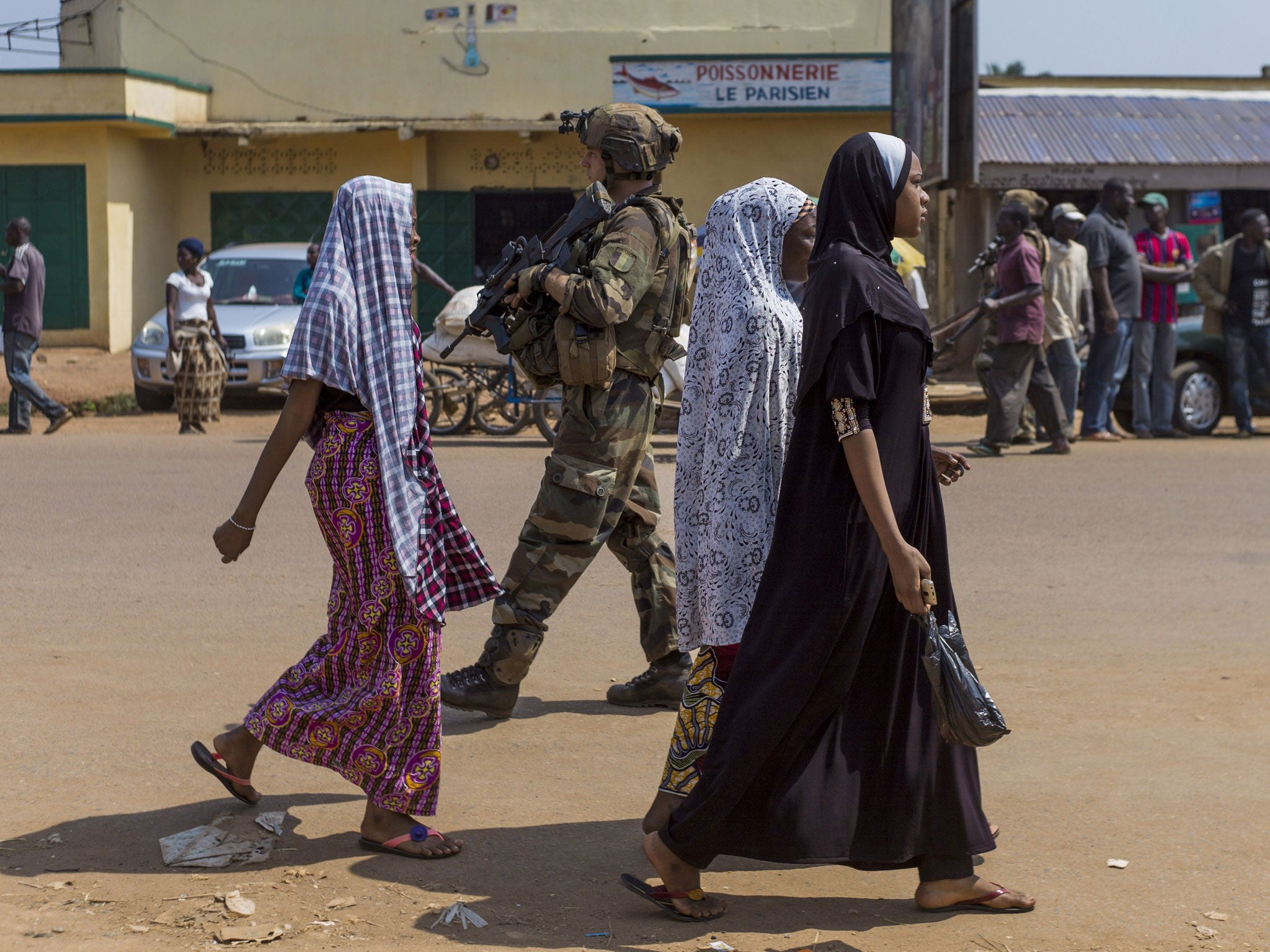EU divided over French plea for CAR military aid
No direct pledges of military intervention in Central African Republic after Brussels meeting

Your support helps us to tell the story
From reproductive rights to climate change to Big Tech, The Independent is on the ground when the story is developing. Whether it's investigating the financials of Elon Musk's pro-Trump PAC or producing our latest documentary, 'The A Word', which shines a light on the American women fighting for reproductive rights, we know how important it is to parse out the facts from the messaging.
At such a critical moment in US history, we need reporters on the ground. Your donation allows us to keep sending journalists to speak to both sides of the story.
The Independent is trusted by Americans across the entire political spectrum. And unlike many other quality news outlets, we choose not to lock Americans out of our reporting and analysis with paywalls. We believe quality journalism should be available to everyone, paid for by those who can afford it.
Your support makes all the difference.France’s appeal for more help with its military operation in the Central African Republic (CAR) and a common fund for future interventions received a lukewarm reception on Monday, with European Union foreign ministers offering words of support but few concrete pledges.
The French Foreign Minister, Laurent Fabius, had asked for more logistical support and troops from fellow EU members to assist the 1,600 French soldiers trying to maintain order after clashes between Christian and Muslim militias battling for control of the capital left hundreds dead.
France is also pushing for the establishment of a common European fund that could be dipped into when conflicts arise overseas. The problem is that France’s enthusiasm for launching military interventions – in particular in its former colonies – is not shared by all its European partners.
Splits in the bloc on defence came into sharp focus earlier this year when the EU failed to come up with a common stance on lifting the embargo on arms deliveries to Syrian rebels. Britain shared France’s interventionist stance, but was bruised by a Commons defeat on military action and has so far been reluctant to commit anything other than logistical support to French operations in CAR.
Many nations are also preoccupied with internal economic difficulties and are wary of the cost and risk of sending troops into conflict zones. After a meeting in Brussels yesterday, the EU foreign ministers released a statement expressing concern about the “alarming” situation in the CAR. “The international community needs to act to stop the crisis from deepening further and we very much welcome the French intervention,” the bloc’s foreign policy chief, Catherine Ashton, said.
There were not, however, any direct pledges from individual countries willing to send troops to CAR, despite Mr Fabius indicating on Sunday that two unnamed nations were considering it. After the meeting, the French minister said he was still expecting more pledges of support – including, potentially, military support – in the coming “hours and days”.
President François Hollande’s suggestion that the EU create a bloc-wide pot of money for funding emergency military interventions was also met with caution. “It’s an interesting idea, but it’s just an idea at this stage,” Frans Timmermans, the Dutch Foreign Minister, said. “If there are plans we will carefully look into them.”
Ms Ashton said that the issue of the common European fund would be discussed in more detail when EU heads of state meet in Brussels at the end of the week. In the meantime, it was “for member states to make the decision about how they want to use their resources in support of some of the challenges that we face”, she added.
So far, Britain, Germany, Poland, Spain and Belgium have all committed logistical support for the French mission in CAR, which was launched with UN support earlier this month to try to restore order after Muslim rebels seized power in March, prompting retaliation by Christian militias.
British officials have stressed that their support remains limited to transport planes. That lack of enthusiasm for deeper involvement is reflected across the bloc. Paul Melly, an Associate Fellow at the Chatham House think-tank, said European nations supported France’s efforts to stem the violence in CAR, but domestic issues remained their priority.
Join our commenting forum
Join thought-provoking conversations, follow other Independent readers and see their replies
Comments